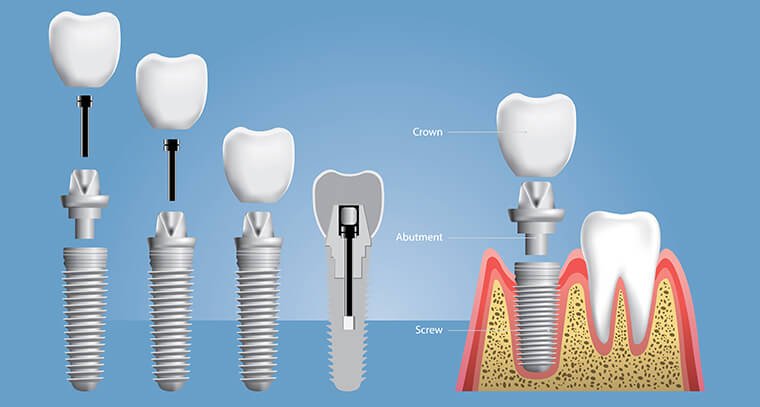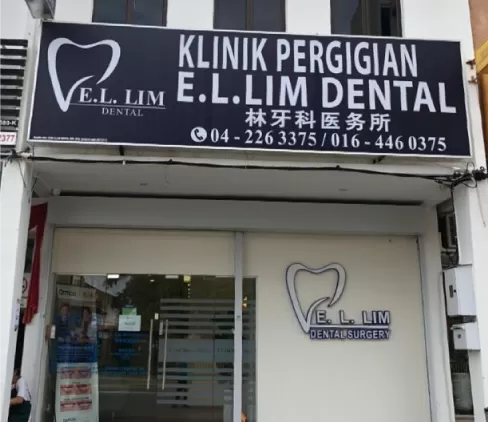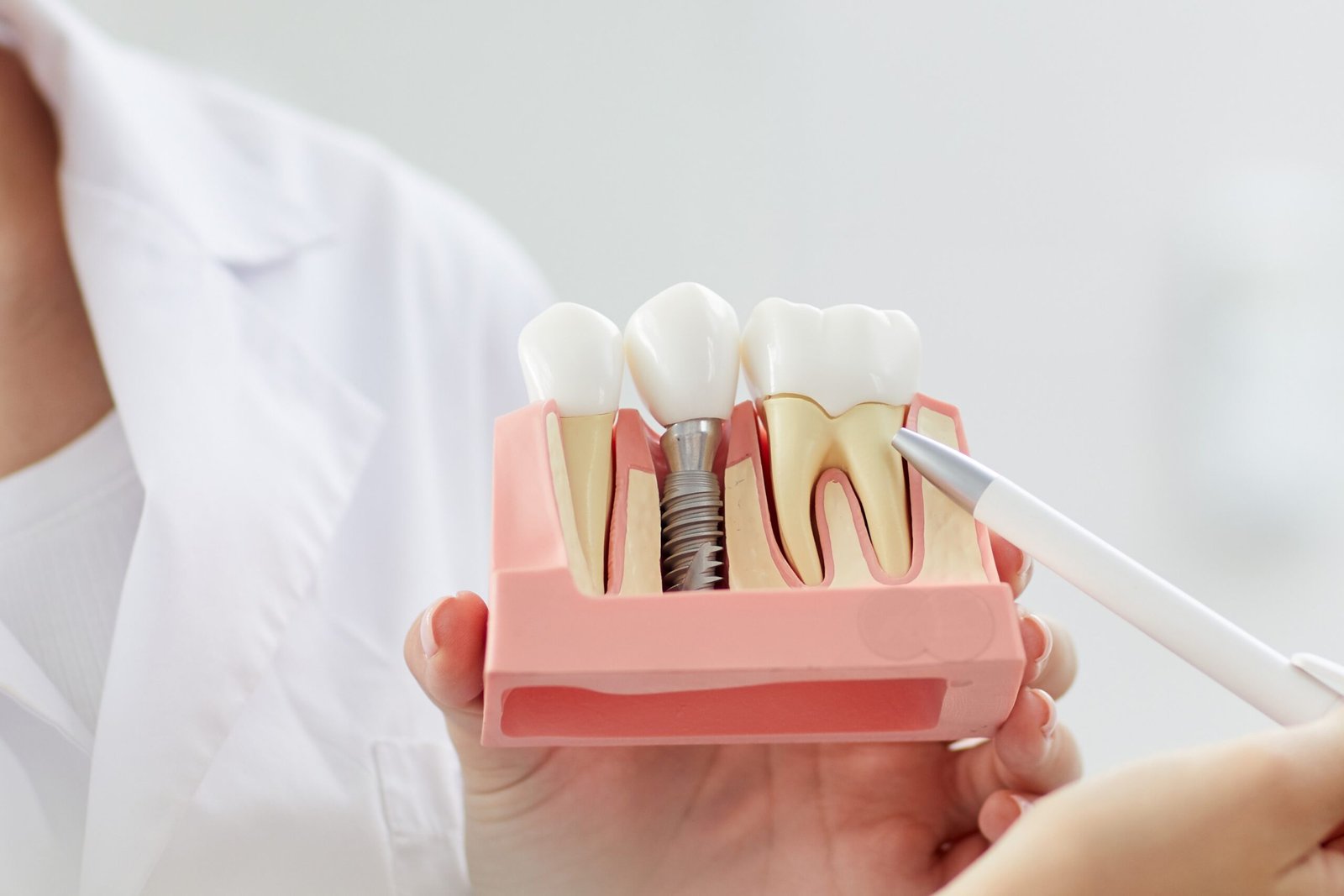Dental implants have revolutionized tooth replacement, offering a stable and long-lasting solution for missing teeth. But what happens if you find yourself with a loose dental implant? Don’t worry—there are solutions! In this post, we’ll explore why dental implants can become loose, how to diagnose the problem, and the steps you can take to fix it.
Which Part of the Dental Implant Gets Loose?
A dental implant is essentially a small, screw-like post made of titanium that is placed into the jawbone to act as an artificial tooth root. This post is topped with a crown that mimics the look and function of a natural tooth. Together, these components create a durable and functional replacement for a missing tooth.
All the parts that make up the dental implant— from the titanium post, the abutment and the crown can come loose due to attachment issues or developing problems in your oral health.

The implant post, also known as the fixture, is the part that is surgically placed into the jawbone. It’s designed to integrate with the bone through a process called osseointegration. If this part becomes loose, it might be due to:
Poor Osseointegration: If the implant post fails to properly bond with the bone, it can become loose. This can occur due to insufficient bone density, infection, or other complications.
Bone Loss: Conditions like bone resorption or bone loss around the implant can cause the post to become unstable.
The abutment is the connector piece that attaches to the implant post and protrudes through the gum to support the crown. The screws that hold the abutment to the implant post can sometimes become loose. This is typically due to wear and tear or improper initial tightening.
If the abutment itself is damaged or improperly fitted, it may not stay securely attached to the implant post.
If the crown becomes loose, it may be due to issues with the cement or screws used to attach it to the abutment. Cracks or fractures in the crown can sometimes give the impression of looseness, although the underlying issue may be with the crown itself rather than the implant system.
Causes of Loose Dental Implants
Several factors can combine to cause a loose dental implant. Your dentist can typically identify the problem, fix the issue and offer advice to avoid it happening again in the future.
Inadequate Bone Support: One of the most common reasons for implant loosening is insufficient bone density. For an implant to remain stable, the surrounding bone must be healthy and dense enough to support it. If the bone hasn’t fully integrated with the implant, it can become loose over time.
Implant Failure: Although rare, defects in the implant itself can occur. These might include issues with the implant material or design, which can compromise its stability.
Gum Disease: Periodontal disease affects the gums and bone that support the teeth. If you have gum disease, it can lead to bone loss and, consequently, implant instability.
Improper Placement: The precision of implant placement is crucial. If an implant is placed incorrectly—either too shallow or at the wrong angle—it might not integrate properly with the bone, leading to loosening.
Overloading: Excessive pressure from biting or chewing can affect the stability of an implant. This is especially common if the implant is not properly balanced with the surrounding teeth.
How Common is a Loose Dental Implant?
A loose dental implant is relatively uncommon, especially when compared to the overall success rates of dental implants. The success rate of dental implants generally ranges from 90% to 98%, depending on various factors such as the location of the implant, the quality of the bone, and the skill of the dental professional. However, while rare, implant loosening can still occur.
Although the incidence of a loose dental implant is not high, it is a potential issue that dental professionals are prepared to handle. Regular check-ups and proper care are vital to ensuring the long-term success of dental implants.
How Does It Get Fixed?
The good news is that a loose dental implant can often be repaired or adjusted effectively. If the issue is simply that the implant has become loose over time, a straightforward solution may be available. In such cases, your dentist can re-secure the implant by tightening it and ensuring that it is properly anchored. This process involves checking the stability of the implant and making any necessary adjustments to restore its firmness.
However, if the loose implant is due to inadequate bone support, a more involved procedure may be required. Bone grafting, for instance, might be necessary to address this issue. During this procedure, additional bone material is added to the area around the implant to enhance its stability. This helps in creating a stronger foundation for the implant to integrate with the surrounding bone, thereby improving its overall support.
Addressing underlying gum disease is another crucial aspect of managing a loose dental implant. Gum disease can significantly affect the stability of the implant, and therefore, must be treated promptly. Common treatments for gum disease include scaling and root planing, which help remove plaque and tartar from beneath the gumline. Other periodontal procedures may also be employed to restore gum health and support, ensuring that the implant remains secure.
In cases where the implant cannot be stabilized despite these interventions, removal and replacement of the implant might be the only viable option. This is generally considered when there is extensive damage or when the implant has failed to integrate properly with the bone. Additionally, sometimes the issue may lie with the crown rather than the implant itself. If the crown is damaged or not fitting correctly, adjustments or a replacement may be necessary to resolve the problem and restore proper function and appearance.
When Should You See a Dentist?
If you suspect that your dental implant is loose to a concerning level, it’s important to get a proper diagnosis. Look out for signs like pain, swelling, or noticeable movement in the implant. If your implant feels loose or shifts when you bite, it’s time to consult your dentist. To determine the cause of the looseness, your dentist will evaluate factors like bone density, gum health, and the integrity of the implant itself.
Dental Clinic in Penang
Expert Implant Dentists at Chin Lim Dental

At EL Lim Dental Surgery, our skilled implantologists have years of experience with dental implant cases. They’ve helped countless patients improve their smile and oral health.
Choosing the right professional for your dental implants is crucial for ensuring a successful outcome. An implantologist, a dentist trained specifically in the placement and management of dental implants, can significantly impact the success and longevity of your implant procedure.
Implantologists undergo extensive training in the specific techniques and technologies related to dental implants. This training equips them with the knowledge to handle complex cases, including those with challenging bone structures or pre-existing dental issues. They have a higher success rate and are better at managing risks.
A loose dental implant can be a concerning issue, but with the right care and treatment, it can often be fixed effectively. Whether it’s re-tightening the implant, addressing underlying issues, or replacing the implant, your dentist is equipped to guide you through the process and restore your oral health.
Got questions or need to schedule a consultation? Contact us today to get the expert care you need and keep your smile in top shape!





